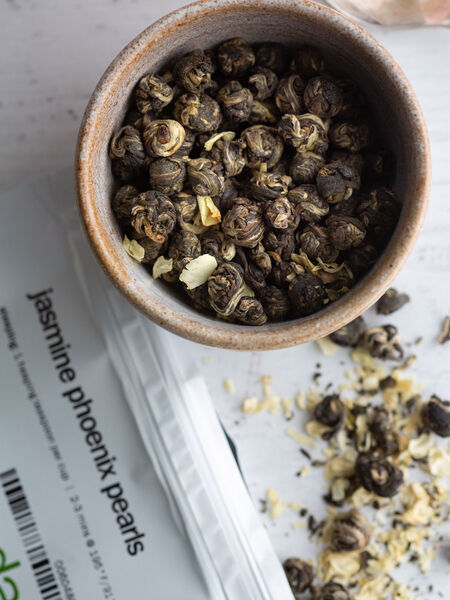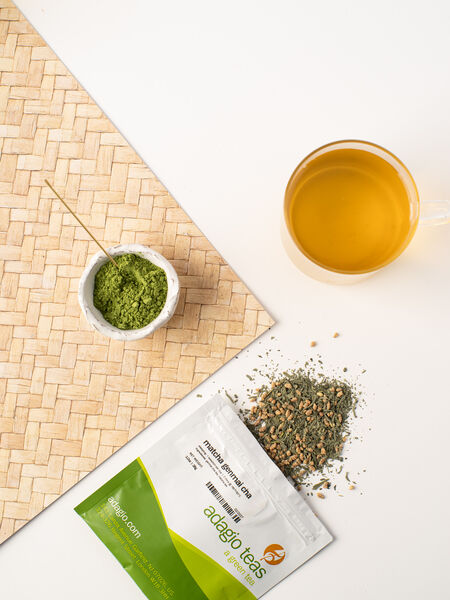Turbocharge Your Mindfulness Practice with Tea


As an antidote to the hustle and bustle of daily life, many people have come to appreciate the benefits of mindfulness - defined as paying deliberate attention to the present moment, focusing internally on our thoughts and feelings while remaining externally aware of the world around us. MRI scans show that experienced meditators can do this to produce a peaceful sense of oneness with their environment.
Developing such an enhanced, calm, meditative state of awareness has been shown by careful clinical research, to improve mental well-being to the point where mindfulness classes are now offered as part of services in health, education, workplaces and prisons.
Techniques of mindfulness may have been rediscovered in the West, but they are certainly not new - having been derived from exercises in the centuries old practices of Zen Buddhism and other eastern traditions. One difference, however, is that westernized meditative practice does not depend on religious beliefs, making it more accessible to everyone.
The historical connection between mindfulness and tea is profound. Tea has been grown for centuries around the mountain monasteries of the East and used by monks to achieve & sustain a physically relaxed state of mental alertness.
The Science and L-Theanine
More recently, science has shown the link between mindfulness and tea is not fanciful. Tea is unusually suitable as a precursor to meditation. Tea shoots are distinguished by a remarkable content of polyphenols, L-theanine and the three methylated xanthines of theophylline (highest in tea), caffeine (highest in coffee) and theobromine (highest in cocoa). The latter three bitter-tasting alkaloids share the same basic chemical structure, differing only in the number and attachment of methyl groups (CH3). Theophylline, for example, is such an effective relaxant of smooth muscle in the bronchi of lungs that it is used in some cold remedies and asthma medications. Theophylline & caffeine are both well-known stimulants of the central nervous system.
Tea is also one of the richest sources of L-theanine, an amino acid found naturally in only a few plants and fungi. It occurs in green, black, and white teas and was first extracted from Gyokuro leaves in 1950. Shielding tea plants from direct sunlight, as done for matcha and green teas, increases the yield of L-theanine.
In the human body, L-theanine is converted by an enzyme to yield GABA (gamma-Amino-butyric acid), the most important inhibitor of neurotransmitters throughout the nervous system of mammals, significantly reducing excitability of nerve tissue and inducing relaxation. But more than that, being a small molecule, L-theanine can cross the blood-brain barrier intact, to produce pharmacological effects directly in the brain - effects such as increasing levels of dopamine. Dopamine is the important neurotransmitter released by the brain as “reward” for pleasurable activity. Small studies of L-theanine with caffeine (also found in green tea), have shown beneficial effects on mood, memory, faster reaction times, speedier numerical calculation and more accurate comprehension of sentences.
We can see from the above there is no doubt that tea contains substances capable of causing psycho-active effects, such as the paradoxical combination of muscle relaxation and mental alertness that contributes to mental focus, clarity and emotional balance. However the exact daily amount of L-theanine absorbed by regular tea drinkers is still uncertain, and some people can react adversely to L-theanine, so health claims for L-theanine alone are not yet accepted in the European Union.
The Tea and Ceremonies
Perhaps the best known examples of tea-facilitated mindfulness are the Japanese tea ceremonies. These sophisticated rituals, developed over roughly a thousand years, take a small group of participants in a coordinated, choreographed way, beyond the westernized practice of individual mindfulness, to achieve group mindfulness - an arguably richer and more profound state in which participants can share, disagree and reflect, through becoming more aware of themselves and others.
For those wanting to experience the higher caffeine of the traditional Matcha tea of ceremonials, Adagio Matcha is an excellent choice. But the good news is that even if we cannot recreate a traditional tea ceremony, we may still be able to find a quiet moment and a peaceful place to enjoy a well-brewed cup of high quality tea and to let nature do the rest in helping us gain new insights. Two fine green teas from Adagio’s Masters range are the Shincha Gyokuro with its raised levels of L-Theanine and for a dreamy perfumed experience, the Jasmine Phoenix Pearls. Or, try the new Matcha Genmaicha to experience the benefits of matcha and green tea at the same time!
These are wonderful teas and production of such quality requires immense care, diligence and effort by many people. They do their best, but the last link in the chain of events allowing experience of the excellence of Adagio’s teas, is the consumer. Here’s the problem: all the hard work involved in producing quality tea can be spoiled by poor brewing practice. So for best results, please read and follow the important tea-brewing advice on the Adagio website.
As an extra incentive, remember that mindful preparation of tea requires deliberate attention to a small task, which in itself has therapeutic benefits. In conclusion, alas, nobody can achieve a state of mindfulness for you and tea alone is not enough; you have to do it for yourself by undertaking the mental practice. But a thousand years of experience, backed now by modern science, has shown a decent cup of tea can help get you there.
